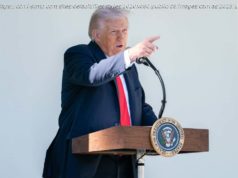Senior House Democrats see endless, overlapping investigations as the safer, more damaging course of action against President Trump than a politically fraught impeachment.
WASHINGTON — Michael D. Cohen’s explosive testimony this week about President Trump’s potentially felonious conduct has not moved House Democratic leaders closer to initiating impeachment proceedings against the president, with top lawmakers preferring to pursue multiple intertwined inquiries as they await the results of the special counsel’s investigation.
Democrats on Thursday emphasized their intent to explore and broadcast Mr. Trump’s actions through existing investigations, believing that, lacking startling new evidence, a drawn-out gantlet of inquiries will do more damage to a president seeking re-election than a partisan impeachment that could only roil the country and energize Republicans — a thousand cuts over a swing of the ax.
“Yes, we have unambiguous evidence that the president has committed a crime at this point, I think,” Representative Jerrold Nadler of New York, chairman of the Judiciary Committee, said in an interview. “Do we have unambiguous evidence he has done impeachable offenses? We’ve got a ways to go yet.”
Speaker Nancy Pelosi of California, who has steadfastly pushed back against calls to try to impeach Mr. Trump, told reporters that impeachment was “a divisive issue in our country,” and that she was more concerned with the president’s declaration of a national emergency at the southern border.
The findings of the special counsel, Robert S. Mueller III, will significantly influence how they proceed, top House Democrats cautioned, but at the moment their preparations for battle are focused almost exclusively on unearthing new facts and challenging the Justice Department for access to the evidence that Mr. Mueller has gathered, not on meting out punishment.
Democratic pollsters who once helped assemble guidance for talking about the importance of the special counsel investigation are developing new polling to help lawmakers reframe the debate on presidential wrongdoing around Mr. Mueller’s possible conclusion, to lay the groundwork for continued investigations and to push back against the attempts by the president’s allies to play down the significance of wrongdoing.
“It should be the last thing on members’ minds,” Representative Mike Quigley, an Illinois Democrat who sits on the Intelligence Committee, said about impeachment. “You have to be patient and you have to be practical. You don’t stop a criminal investigation when you have enough. You stop when you have learned everything there is to be learned.”
The resistance to impeachment puts the leadership at odds with some rank-and-file Democratic lawmakers, liberal activists and a significant portion of Democratic voters who believe that sufficient evidence already exists to start the process of ousting the president.






